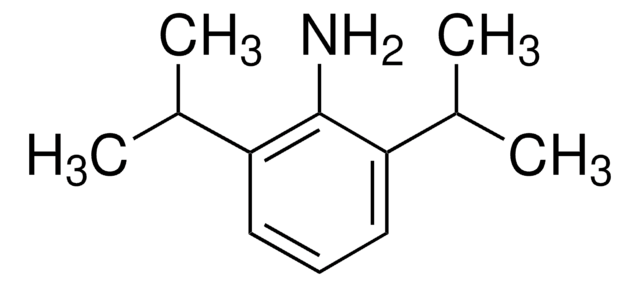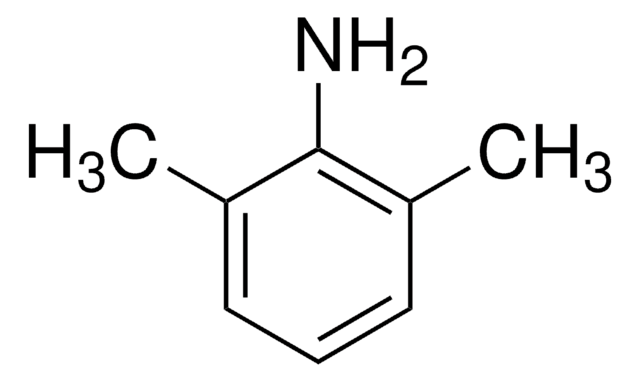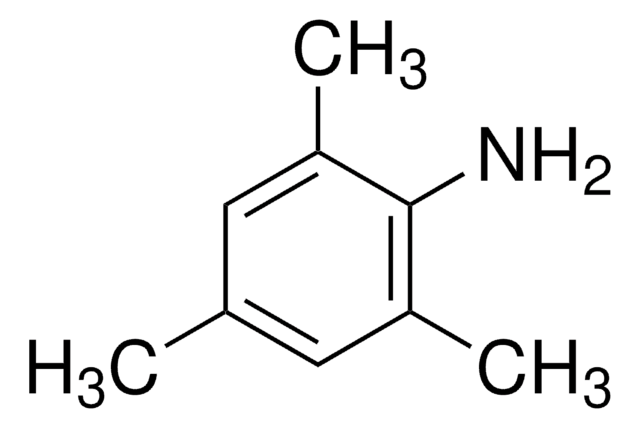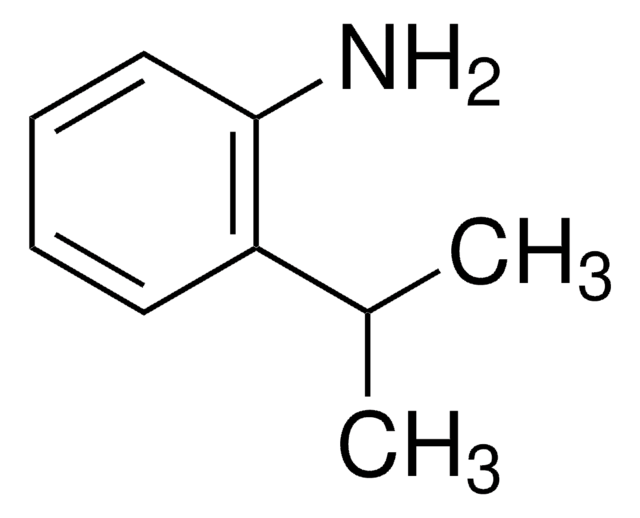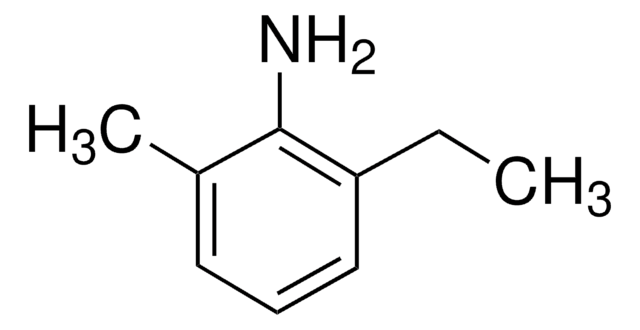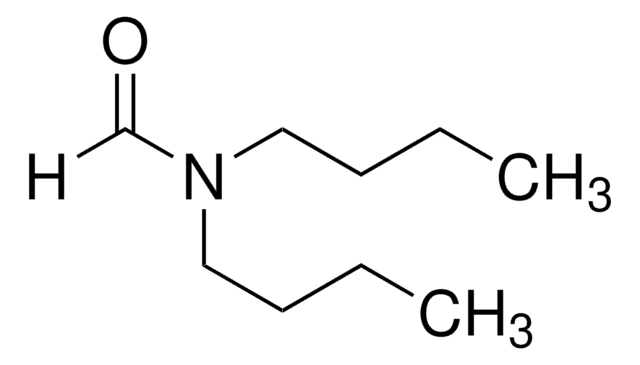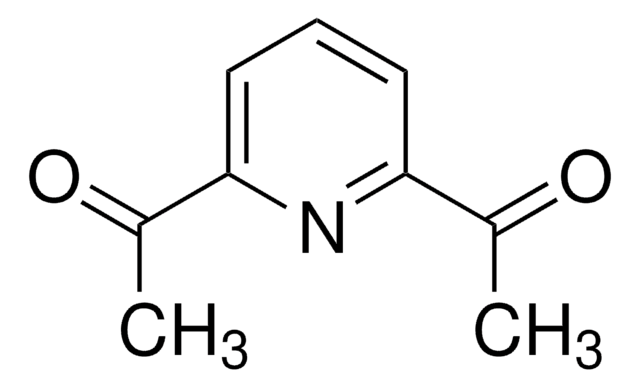149381
2,6-Diethylaniline
98%
Sinonimo/i:
2-Amino-1,3-diethylbenzene
About This Item
Prodotti consigliati
Tensione di vapore
0.02 mmHg ( 20 °C)
Livello qualitativo
Saggio
98%
Indice di rifrazione
n20/D 1.545 (lit.)
P. ebollizione
243 °C (lit.)
Densità
0.906 g/mL at 25 °C (lit.)
Stringa SMILE
CCc1cccc(CC)c1N
InChI
1S/C10H15N/c1-3-8-6-5-7-9(4-2)10(8)11/h5-7H,3-4,11H2,1-2H3
FOYHNROGBXVLLX-UHFFFAOYSA-N
Cerchi prodotti simili? Visita Guida al confronto tra prodotti
Descrizione generale
Avvertenze
Warning
Indicazioni di pericolo
Consigli di prudenza
Classi di pericolo
Acute Tox. 4 Oral
Codice della classe di stoccaggio
10 - Combustible liquids
Classe di pericolosità dell'acqua (WGK)
WGK 2
Punto d’infiammabilità (°F)
239.0 °F - closed cup
Punto d’infiammabilità (°C)
115 °C - closed cup
Dispositivi di protezione individuale
Eyeshields, Faceshields, Gloves, type ABEK (EN14387) respirator filter
Scegli una delle versioni più recenti:
Possiedi già questo prodotto?
I documenti relativi ai prodotti acquistati recentemente sono disponibili nell’Archivio dei documenti.
I clienti hanno visto anche
Il team dei nostri ricercatori vanta grande esperienza in tutte le aree della ricerca quali Life Science, scienza dei materiali, sintesi chimica, cromatografia, discipline analitiche, ecc..
Contatta l'Assistenza Tecnica.